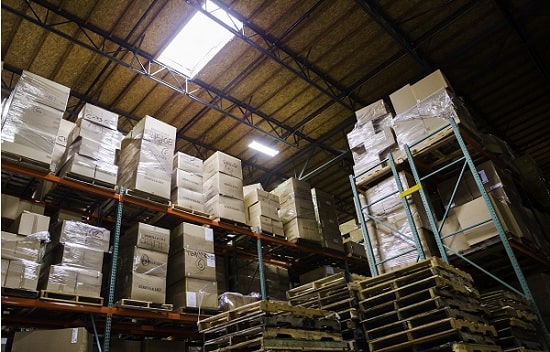Supply chain intelligence (SCI) is crucial in Asia – a region that is seeing dynamic growth and increasing complexities particularly in the pharma and healthcare sectors. For customers in these industries, full visibility of supply chains through big data and AI is increasingly critical. This article explores how SCI technologies can provide strategic information to decision-makers for better-quality supply chains and how logistics providers will aid compliance and cost optimisation for their healthcare customers.
Supply chains in Asia are fast evolving into smarter, technology-driven systems for a dynamic healthcare industry. In today’s digital marketplace, supply chains are becoming highly interconnected and competitive. Now more than ever, investment in supply chains is taking on a strategic priority in Asia. Supply Chain Intelligence is a key area of focus empowering pharma business operators to better track the entire supply chain, get real-time performance insights and get full visibility along the entire process so they are in a better position to tackle today’s global complexities surrounding supply chains. Supply chain investment is a priority in order to enhance intelligence in the system itself so that supply chains continue to modernise.
Role of Supply Chain Intelligence in healthcare logistics
Generally, the supply chain refers to the resources needed to deliver goods or services to a customer. Managing the supply chain in healthcare is typically a very complex and fragmented process. Due to increasing competition, rising costs, government regulations, and demand for a higher quality of service, healthcare providers are under enormous pressure.
Logistics is the gateway for pharmaceutical companies to bring their products to a global marketplace at minimal risks. Given the diversified locations, mergers, multiple information systems, changing organizational structures across the globe, supply chain leaders in healthcare and pharma need to optimize supply usage throughout the enterprise. The real value-add lies in innovation. A strong technology-backed supply chain can provide deeper, better insights into transportation including temperature control and cost optimization.
 Complete Visibility and Real-time Tracking will be game changers
Complete Visibility and Real-time Tracking will be game changers
Products, such as vaccines, bio-pharmaceuticals and cell therapies, need to be transported under stringent environmental conditions where temperature, humidity, light exposure and other variables are tightly controlled. Tracking and monitoring the ingredients from supplier to factory, measuring temperature, time and the location to deliver reliable data and a clear line of sight at every stage is critical. This level of visibility and tracking are the top areas which can really help supply chain leaders – and therefore, healthcare and pharma providers – to identify efficiencies and gaps and then tie that to their business profitability.
Historical data can allow supply chain providers to deploy optimal packaging designs and utilize cold storage facilities during transportation, while real-time data analysis can flag specific shipments where intervention is required immediately to save a product. For instance, FedEx regulatory compliance is supported by end-to-end tracking technologies which generate extensive data and continuous visibility on bio-pharmaceutical shipments.
One example is the SenseAware service—a FedEx innovation—that monitors temperature, humidity, light exposure, shock events, and other environmental factors that can impact supply chain integrity. The combined multi-sensor device can gather, send and monitor data, enabling a comprehensive array of real-time tracking. Customers have a clear line of sight at every stage and identify and solve potential risks along a complex supply chain.
FedEx supports clinical trial projects by providing greater transparency throughout the supply chain. It will not only make the customers’ life easier but also elevate their business and help them connect to a larger network in APAC and worldwide. To add, automation will continue to improve, and automated tracking systems will help to reduce the need for manual inventory management as well as considerably reduce drug wastage due to expiration and spoilage, since facility personnel can be proactively alerted to the status of products in storage. With inventory data digitized, healthcare facilities can work faster, and with added accuracy, to better meet accreditation and government regulation requirements.

Big Data will be central to predicting and mitigating risk
Data and AI will play a key role in supply chain management and will empower business operators to conduct real-time data analysis. Modern-day Supply Chain Intelligence (SCI) is digitally driven and can better help companies slash costs and increase customer satisfaction by combining data and analytics to draw out patterns and look into the future. Broadly speaking, supply chain management (SCM) technologies will enhance operational and transactional efficiencies in manufacturing, sourcing, and distribution. SCI technologies can integrate business intelligence with data from SCM systems, providing strategic information to decision-makers. By harnessing data and innovating with technology, manufacturers and their logistics providers can further customize solutions and effectively close the shortage gaps.
Predictive analytics can enable scientists to identify patterns and gaps, and suggest efficiencies, revenue opportunities, potential problems or competitive advantages. Real-time data can be processed by manufacturers and their supply chain vendors through descriptive analytics to reveal operations patterns. Companies can forecast how their supply chain may evolve, and develop risk-mitigation strategies to fix identified weaknesses.
Logistics is the gateway for pharmaceutical companies to bring their products to a global marketplace at minimal risks.
Logistics can drive the development of healthcare industry supply chain
The future of the healthcare industry will be global and borderless. The biopharmaceutical boom in Asia is calling for the adoption of new technologies and higher quality cold chain services. With innovative solutions such as “Smart” medical inventory cabinets and sensor-based technologies, FedEx, a logistics industry leader for healthcare and other specialty shipments, continues to identify innovative ways to provide the visibility required by customers up and down the supply chain.
Accurate forecasting, faster response times, ability to recognize shipping patterns to plan for risk, saving on costs, in addition to running a low-to-zero waste operation will be key parameters for the industry to measure business efficiencies, supplemented by effective supply chain intelligence. Logistics companies must continue to enhance their solutions and remain focused on innovation to aid compliance and cost optimization for their customers in the healthcare industry.
Accurate forecasting, faster response times, ability to recognise shipping patterns to plan for risk, saving on costs, in addition to running a low-to-zero waste operation will be key parameters for the industry to measure business efficiencies, supplemented by effective supply chain intelligence. Logistics companies must continue to enhance their solutions and remain focused on innovation to aid compliance and cost optimisation for their customers in the healthcare industry.

















